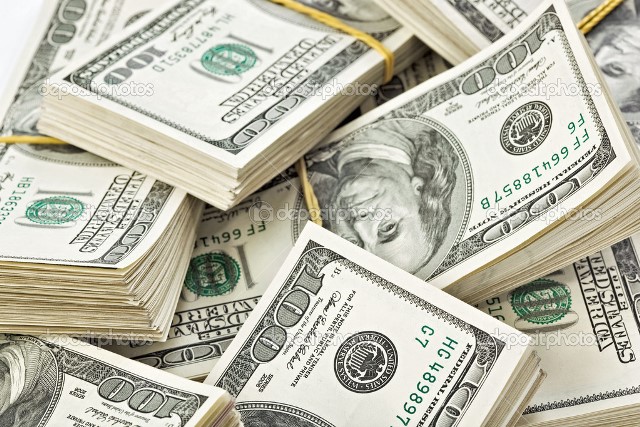
Nigeria’s external reserve is now at $40.4billion, the first since 2014, before the crash in the price of crude oil in the international markets.
The Central Bank of Nigeria (CBN) announced the development last Monday in a statement.
The level is significant because that is the target that Governor of the CBN, Mr. Godwin Emefiele, had set to achieve by the end of 2018. He spoke at the Annual Bankers’ Dinner of the Chartered Institute of Bankers in Lagos in November.
The reserve was as low as $23 billion in October 2016 and its highest was in September 2008, when it stood at $62bn, with the Federal Government expending about $12bn to settle debts owed foreign creditors.
The CBN said the external reserves topped $40.4bn on Friday, January 5, 2018, indicating an increase of about $1bn between December 2017 and January 2018.
Nigeria’s reserve has benefited from the peace in the Niger Delta as well as the rise in the price of crude in the international market but the main driver has been the Importers and Exporters foreign exchange window that was created by the CBN which allowed portfolio foreign investors enter and exit the equities market with ease.
The acting Director, Corporate Communications, CBN, Mr. Isaac Okorafor, while confirming the latest development, attributed the accretion to the reserves to the central bank’s strategy of effectively managing forex demand by various sectors of the economy.
Citing the CBN policy restricting access to forex by importers of some 41 items as the major turning point, Okorafor said the policy had helped to stop the haemorrhaging of the country’s external reserves, which had witnessed heavy depletion due to huge import bills and other debt obligations.
According to him, the CBN policy has ensured a decline in Nigeria’s import bills from over $5bn monthly in 2015 to about $1.5bn in 2017.
He expressed optimism that with the determination of the regulator and the cooperation of the fiscal authorities, the external reserves would continue to enjoy more accretion in the course of 2018.
Meanwhile, the CBN injected a total of $210m into the interbank window of the foreign exchange market on Monday for requests in the wholesale, Small and Medium Enterprises and invisibles segments of the market.
A breakdown of the figure indicated that the CBN offered $100m to the wholesale sector, while the SMEs and invisibles windows each received $55m.
In his remarks on the nation’s external reserves, Emefiele had in November last year said, “It is my belief that if we remain resolute with our efforts, policies and actions, we can attain a foreign exchange reserves position of about $40bn by end of 2018.”
Emefiele had in December disclosed that the nation’s foreign reserves rose to $38.2bn with the issuance of Eurobonds by the Federal Government.
He described the external reserves figure as the highest in 39 months.
In November, the Federal Government raised $3bn through Eurobonds, which were oversubscribed by about $11bn and split across 10-year and 30-year tranches at issuance yield of 6.5 per cent and 7.625 per cent, respectively.
No comments:
Post a Comment